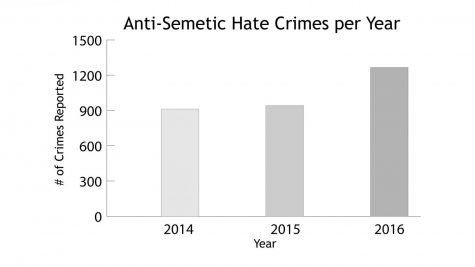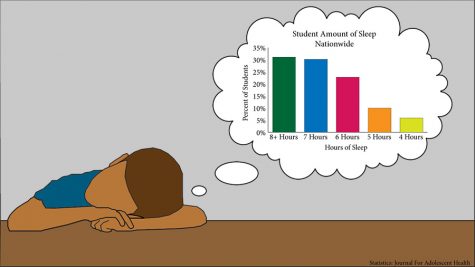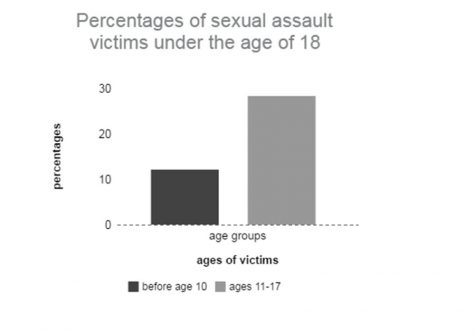The anti-vaccination movement is sickening
These are the current statistics of kindergarteners and seventh graders who have not been vaccinated. The percentages are never above 3% which shows that many parents in Minnesota are vaccinating there children at these landmark ages.
When my parent were kids, vaccinations were an uncontroversial, normal part of childhood healthcare. But nowadays, the news is full of stories about the vaccination controversy. How did vaccinations become controversial? Is there any reason to believe that they are unsafe? I believe vaccinations are a life saving part of modern medical care.
Opponents of vaccination believe vaccines are dangerous, but is there anything supporting this claim? And if they are dangerous, do vaccinations really pose more dangers than the diseases they prevent?
Generally, people who are opposed to vaccines for non-religious reasons are under the impression that the mercury in them causes autism, despite the fact that since 2001, none of the vaccines administered to children have contained mercury, according to the CDC (Center for Disease Control). This anti-vaccination belief stemmed from the 1998 paper published by Andrew Wakefield in the British magazine Lancet. In the article, Wakefield had made the claim that MMR vaccines (measles, mumps, and rubella) had a direct cause and effect relationship with autism in children.
Although Wakefield’s article was influential, it was opposed by many prominent public health figures and institutions. The most notable criticisms of the paper were by British Investigative reporter Brian Deer. Deer discovered that Wakefield had been hired two years earlier by an attorney who was pursuing a lawsuit against drug companies who manufactured MMR. And when investigating the paper itself, he found that Wakefield had altered data to make it seem as if the vaccines were harmful, when in fact the findings had not demonstrated any prevalence of autism related effect in MMR vaccines. The CDC released a statement saying that vaccines do not cause autism, nor do any of their ingredients.
According to the CDC, vaccinations saved more than 700,000 lives between 1994 and 2013 that could have been taken by otherwise preventable diseases. It also credits vaccinations with preventing over 20 million hospitalizations. Diseases, such as measles, whooping cough, rubella, and mumps, that were once responsible for the deaths of thousands of people a year have been all but eradicated, thanks to the practice of vaccinating.
So, what happens when people think vaccines are unsafe? In Britain, according to an Associated Press article published in 2011 by Mike Stobbe, the distrust led to a 20% decrease in immunization. Now, let’s do a little bit of math. The CDC says 700,000 lives have been saved by vaccination in the last 20 years. Take 20% of those 700,000, and you get 140,000. 140,000 people could die because their parent believed the misinformation
Schools are effectively a giant, disease ridden chamber, that you are sent to for educational purposes. So what do South high students think about vaccinations? Oliver Roberg- Perez, a 9th grader at South spoke on the subject of the controversy: “It’s not a controversy, it’s idiocy.”
In an over-the-phone interview, 10th grader Peter Rossow explained what his views on vaccinations were. He said: “I think they’re a necessary part of modern life, and don’t cause any adverse side effects except when botched, which is incredibly rare. They do not cause Autism, which is ridiculous, but rather they save people from incredibly painful and deadly diseases and make our immune systems stronger.” Rossow went on to explain that ‘botched’ vaccines are incredibly rare.
When speaking to Julie Eldridge, one of South’s health officials, she stated what her own views on vaccinations were. “In my opinion, vaccines are one of the three things that have increased our life expectancy. There’s only really three advances in medicine that have done that, and that is sanitation, vaccinations, and antibiotics.”
The main arguments that anti-vaxxers reference whenever they try to make their points is an article that has been criticized, debunked, redacted and is simply false. To this day, there is no evidence that vaccines pose any risk of causing autism to children. But nevertheless, despite scientific evidence, there are still parents who choose not to vaccinate their children because of words laid down almost 20 years ago and reinforced by fear.

Elliott Askari-Rabe is joining the Southerner for his first year and we are so excited to have his profound knowledge of politics and literature. Askari-Rabe...











